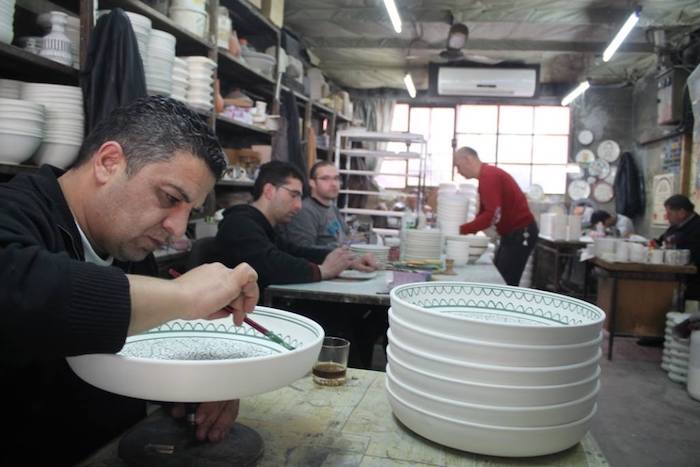
Most people agree that buying goods online saves time, money, and makes shopping easier and more comfortable. Through the web, you can buy things with a simple click and find all that you want at any time you want, buying it in less than a minute. Normally, people use well-known websites that offer purchase guarantees like eBay, Amazon, Alibaba and many others to do their shopping.
Palestinian Markets
Palestine is filled with markets and shops that offer different types of products that are produced locally or imported, mostly from China, Turkey and many other countries. Palestinians are known for goods manufactured or harvested locally such as wax, olive wood, seashells, glass, textiles, ceramics, pottery, metal crafts, floral stickers, beadwork, embossing on eggs, soap, and shoes. Hebron, for example, is known as the powerhouse of the Palestinian economy because the city contributes about 40% of GDP. The city also contains 22,000 economic establishments and one-third of the livestock production in the West Bank, including major importers and exporters.
Can I Buy Goods Online in Palestine?
The idea of buying stuff online is not yet widely accepted among Palestinians consumers. Palestinians still believe that purchasing is a concrete process requiring checking the markets and products personally. In Palestine, purchasing is still a traditional process in which people go to the markets to spend time, to look and to examine the goods whether it is clothes, shoes, electronics and so on. There were some attempts by Palestinian youth to establish websites where people could buy what they need online but the idea has achieved little success as of now. You can check out one of these websites, called Loqta here: www.loqta.ps.
Why is Shopping Online Unpopular in Palestine?
There are several reasons shopping online in Palestine is not more popular. First, as previously stated, Palestinians consumers see shopping as a concrete operation that should be done in the actual markets and shops. Secondly, in Palestine there is no home mail system which guarantees that the products purchased electronically reach to the buyer’s home. This means Palestinians are not encouraged to do their shopping online and prefer go to the markets directly on their own.
Thirdly, there are no trusted, professional online shopping sites in Palestine yet. People in Palestine don’t yet trust using the existing Palestinian online shopping sites due to payment complications and delivery problems since the houses, buildings, and offices are not numbered. Fourth and finally, Palestinians are used to negotiating to reduce the price during purchasing and such websites deprive them this option.
